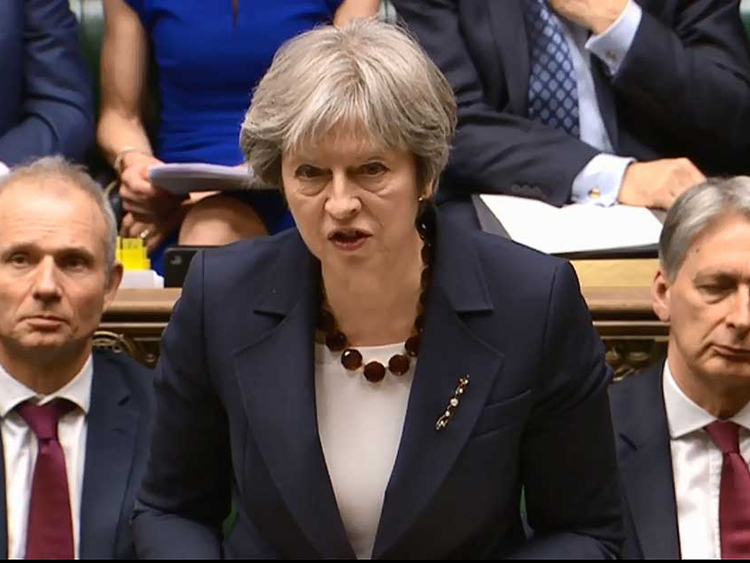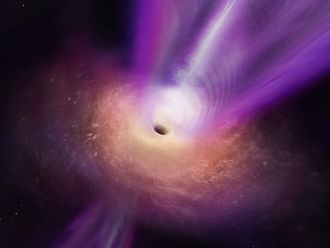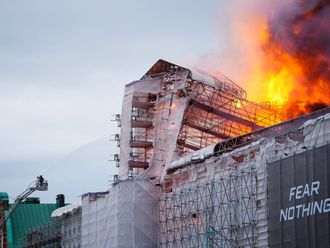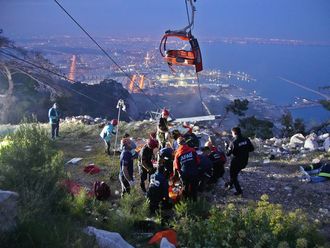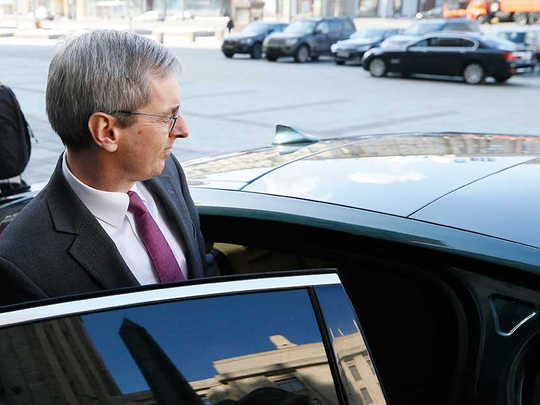
Russia ordered the expulsion of 23 British diplomats in retaliation for the UK's ouster of the same number of Kremlin envoys over the nerve-agent poisoning near London of a former spy and his daughter.
The British consulate in St. Petersburg was also ordered to close and the British Council must stop its work in Russia, the Russian Foreign Ministry said in a website statement Saturday. UK Ambassador Laurie Bristow was summoned to the ministry and told the measures are "in response to the provocative actions of the British side and the unsubstantiated accusations" against Russia, the ministry said.
The action came after UK Prime Minister Theresa May accused Moscow on Wednesday of an "unlawful use of force" involving weapons-grade nerve agent and ordered out the largest number of Russian diplomats from London in 30 years. She also broke off all high-level contacts over the chemical attack that poisoned former Kremlin double-agent Sergei Skripal and his daughter Yulia in the city of Salisbury on March 4. The pair remain in critical condition.
Russia halts activities of British Council: foreign ministry
MOSCOW: Russia said Saturday it was halting the activities of the British Council across the country in response to Britain's measures over the poisoning of a former Russian double agent and his daughter.
"Due to the unregulated status of the British Council in Russia, its activity is halted," the foreign ministry said in a statement referring to Britain's international organisation for cultural relations and educational opportunities.
Russia to expel UK diplomats as row over spy attack escalates
In London, Foreign Secretary Boris Johnson ratcheted up the rhetoric against Russia, accusing it of glorying in the attack on Sergei Skripal, which he described as a way of scaring anyone who stood up to President Vladimir Putin.
File picture: Journalists watch as Russian President Vladimir Putin gives his annual state of the nation address in Manezh in Moscow, Russia
Britain says Russia is responsible for the poisoning with a Soviet-era 'Novichok' nerve agent of Skripal, 66, and his daughter Yulia, 33. They were found unconscious on March 4 in the city of Salisbury in southern England and remain critically ill in hospital.
Moscow denies any involvement. The Kremlin said the British position was irresponsible and not backed up by evidence. It said Britain would not have to wait long for Russia's response.
Lavrov was quoted by the official news agency RIA as saying the accusations were unacceptable and that British diplomats would be expelled.
But in a series of British media interviews early on Thursday, Johnson said the evidence of Russian guilt was "overwhelming" because only Moscow had access to the poison used and a motive for harming Sergei Skripal.
"There is something in the kind of smug, sarcastic response that we're heard from the Russians that to me betokens their fundamental guilt," he told the BBC.
"They want to simultaneously deny it and yet at the same time to glory in it." Johnson said the attack was a way for Putin to send a message to anyone considering taking a stand against it that 'You do that, you are going to die'.
Targetting Russian money
A former agent of the GRU, Russia's military intelligence agency, Skripal betrayed dozens of Russian agents to Britain before being arrested in Moscow and jailed in 2006. He was freed as part of a spy swap deal in 2010 and took refuge in Britain.
At home, the British government has been under pressure from lawmakers and media to show it is getting tough on Russia, with some experts saying that despite the rhetoric the response did not go far enough to bother Putin.
Johnson defended the measures announced on Wednesday and suggested that there could be further consequences for wealthy Russians with assets in Britain.
"We will go after the money and actually we are going after the money," he said, adding that the National Crime Agency and Economic Crimes Unit were investigating a wide range of individuals. He declined to give details, citing legal reasons.
"What people want to see is some of the very rich people ...
whose wealth can be attributed to their relationship with Vladimir Putin, it may be that the law agencies, that the police will be able to put unexplained wealth orders on them, to bring them to justice for their acts of gross corruption," he said.
Johnson also said he had been heartened by strong expressions of support from the United States and other allies -- although it remains unclear whether there will be a coordinated international response to the Novichok attack.
France, which on Wednesday had said it wanted proof of Russian involvement before deciding whether to take action against Russia, appeared to change its position on Thursday, saying it agreed with the assessment of its Nato ally Britain.
"France agrees with the United Kingdom that there is no other plausible explanation (than Russian involvement) and reiterates its solidarity with its ally," President Emmanuel Macron's office said.
US Ambassador to the United Nations Nikki Haley said on Wednesday that Washington believed Moscow was responsible for the attack, adding it was a crime worthy of UN Security Council action.
Any effective Security Council action seems highly unlikely, however, given that Russia, like Britain and the United States, is a permanent, veto-wielding member of the body.
Russia has repeatedly said Britain was refusing to provide a sample of the nerve agent used in Salisbury.
Johnson said Britain would send a sample of the nerve agent to the Organisation for the Prevention of Chemical Weapons for them to independently assess it.
UK to freeze Russian state assets; Britain to develop new laws to harden its defences
LONDON: Britain will expel 23 Russian diplomats in retaliation for a chemical attack on a former Russian double agent, Prime Minister Theresa May said on Wednesday.
Sergei Skripal, 66, and his daughter Yulia, 33, were found slumped unconscious on a bench outside a shopping centre in the genteel southern English city of Salisbury on March 4. They have been in a critical condition ever since.
Below is a list of the actions set out by May in parliament on Wednesday:
- Britain will expel 23 Russian diplomats who it says have been identified as undeclared intelligence officers.
- "They have just one week to leave," May said. "This will be the single biggest expulsion for over thirty years and it reflects the fact that this is not the first time that the Russian State has acted against our country." - Britain "will freeze Russian state assets wherever we have the evidence that they may be used to threaten the life or property of UK nationals or residents".
- Britain will develop new laws to harden its defences against all forms of "hostile state activity" including being able to detain those suspected of hostile state activity at Britain's borders. Currently this power is only used in relation to those suspected of terrorism.
- No British ministers or members of the Royal Family will attend this year's soccer World Cup. Britain will suspend all planned high level bi-lateral contacts between the UK and the Russian Federation.
- All capabilities of UK law enforcement will be brought to bear against "serious criminals and corrupt elites", May says, adding that there is there is "no place" for them or their money in Britain.
- Britain will "fundamentally degrade" Russian intelligence capability in the UK for years to come and prevent them from rebuilding it.
- Britain will start to monitor and track the intentions of those travelling to the UK who could be engaged in activity that threatens Britain and its allies. "We will increase checks on private flights, customs and freight," she said.
- Britain's interior minister will consider whether new counter-espionage powers are needed to clamp down on hostile activities of foreign agents in Britain.
- Britain will seek to strengthen its power to impose sanctions in response to the violations of human rights. "In doing so, we will play our part in an international effort to punish those responsible for the sorts of abuses suffered by Sergei Magnitsky," May said.
- May said "it is tragic that President Putin has chosen to act in this way", adding that she has no disagreement with Russian people or Russian citizens living in Britain in a law-abiding away.
British Ambassador to Russia Laurie Bristow leaves the Russian Foreign Ministry in Moscow, Russia, March 14, 2018.
Moscow says Britain shouldn't pass judgement on Russian foreign minister
Russian Foreign Ministry spokeswoman Maria Zakharova said on Wednesday it was not up to British Prime Minister Theresa May to pass judgement on Russian Foreign Minister Sergei Lavrov.
"Theresa, Lavrov is a Russian minister, not a British one.
And it's the Russian President who evaluates him. I understand, that you would like to think otherwise, but your minister is Boris Johnson," Zakharova wrote on her official Facebook page.
A police cordon surrounds the area near a bench covered in a protective tent at The Maltings shopping centre in Salisbury, southern England, on March 14, 2018, where a man and woman were found critically ill on March 4, after being apparently poisoned with what was later identified as a nerve agent sparking a major incident.
Her comment was the first official response to a speech in parliament in which May outlined measures Britain intends to take in response to the poisoning of former Russian double agent Sergei Skripal. It was unclear to which comments by May Zakharova was referring.
Allied support
Britain is wary of acting alone and May has spoken to US President Donald Trump, French President Emmanuel Macron and German Chancellor Angela Merkel in recent days.
In a phone call late Tuesday, Trump and May "agreed on the need for consequences for those who use these heinous weapons in flagrant violation of international norms", the White House said.
In a joint statement by its 29 member states, the US-led NATO alliance said the attack was a "clear breach of international norms and agreements" and called on Russia to fully disclose details of the Novichok programme.
British experts say Skripal, 66, and his 33-year-old daughter, who was visiting from Russia, were poisoned with a nerve agent from a broad category known as Novichok, which developed by the Soviet Union during the late stages of the Cold War.
The Russian chemist who first revealed the existence of Novichok, Vil Mirzayanov, said "only the Russians" developed the Novichok agents.
"They kept it and are still keeping it in secrecy," he said from his home in the US, where he moved in 1995 after 30 years of working for the State Scientific Research Institute of Organic Chemistry and Technology.
The Salisbury case has drawn parallels with the 2006 death by radiation poisoning of former Russian agent and Kremlin critic Alexander Litvinenko, which Britain blamed on Moscow.
In a further twist, former senior Russian executive Nikolai Glushkov, linked to late Kremlin opponent Boris Berezovsky, was found dead in London on Tuesday in unexplained circumstances, British and Russian media reported.


